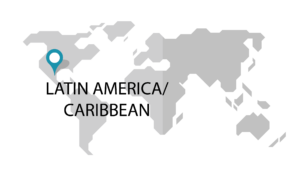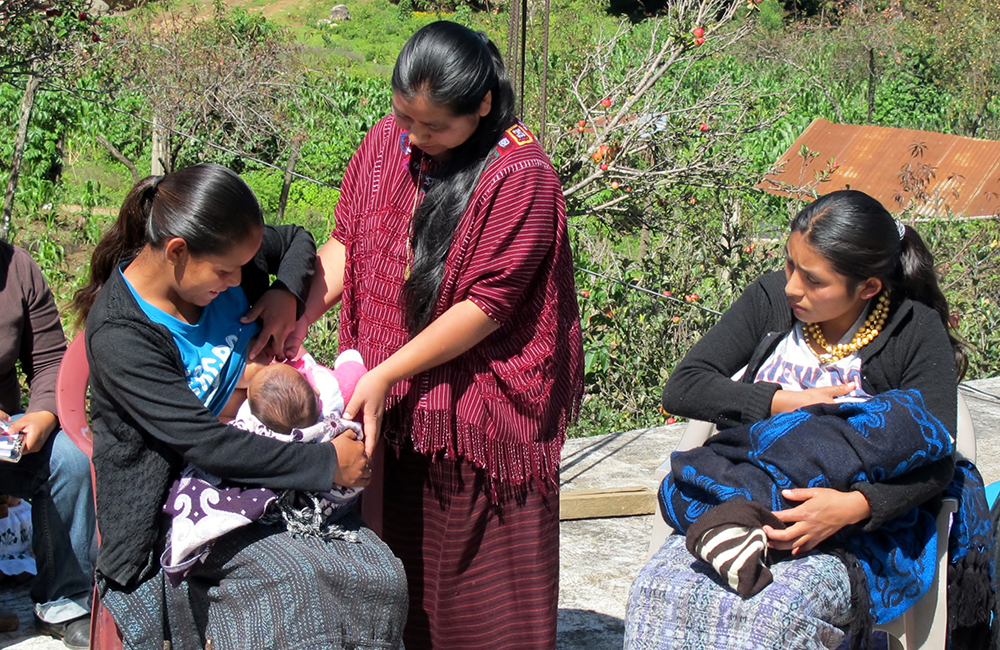Region



Region

What it does
Curamericas Global works through its in-country partner, Curamericas Guatemala, to provide health services to a population of 8,700 indigenous people in a remote mountain region of northwest Guatemala. Geographic isolation, cultural discrimination, and mistrust of outsiders stemming from civil war have left this population without a reliable local source of maternal care or primary health care for young children. As a result, it has some of the worst health outcomes in all of Latin America: a mortality rate for children under five years of age that’s almost 60% higher than that of non-indigenous Guatemalan children, and a maternal mortality rate that is double the rate for non-indigenous women.
To address these disparities, the Curamericas partnership trains local women as volunteer mother peer educators. These mothers teach other mothers in their community about life-saving health practices, such as proper sanitation/hygiene to prevent disease and the importance of giving birth in a clean, supervised setting, such as a birthing center. Curamericas operates three such centers, known as Casas Maternas Rurales. The Casas are built and operated by the community and staffed by trained nurses who work in conjunction with Comadronas, indigenous midwives who are respected in the community and who help Curamericas staff gain and maintain the trust of local women.
How effective is it
The Curamericas partnership has built trust and improved health outcomes for mothers and young children with some of the worst health in Latin America. Most notably, the partner communities that built and manage the Casas Maternas Rurales have not had any maternal deaths for the past three years, in a region with some of the highest maternal mortality rates in the world.
Providing emergency obstetric care and increasing use of birthing centers have been crucial to this success. For example, 70% of women in one municipality served by Curamericas deliver in a health facility, compared with only 30% of indigenous women who live outside the project service area. The percentage of pregnant women in Curamericas catchment areas who received the four recommended prenatal care checks during their last pregnancy increased from 13% in 2011 to 65% in 2015. In this same period, the death rate of children ages one to five also fell from eight per 1,000 children to only two per 1,000. What’s more, growth stunting in young children (a sign of chronic malnutrition) dropped from 74% to 39%.
How you can help
The nonprofit reports that $275 covers the cost of a clean, safe delivery in a Casa Materna Rural. Each Casa costs $25,000 per year to operate and serves around 1,150 women, including pregnancy care, delivery services, and programming for support groups and peer education. About $45,000 covers the building materials, furnishing, and supplies for each new Casa, built entirely from volunteer labor. Curamericas Global is in the process of expanding services to another 13,000 people in Guatemala and also runs similar programs for vulnerable women and children in Sierra Leone, Kenya, Liberia, Bolivia, and Haiti. You can donate any amount at https://www.curamericas.org/donate/.
Other organizations in this region
Hôpital Albert Schweitzer (HAS) integrates a full-service referral hospital in rural Deschapelles, Haiti with community health outreach. HAS has been particularly successful in its nutrition and water/sanitation/hygiene programs, and its model has been replicated by other NGOs. Partners in Health (PIH) addresses root causes of poor health in ten countries around the world. In Haiti, PIH has provided comprehensive health care to 1.2 million people through its network of community health workers, who support regional hospitals and health centers. For more on HAS and PIH, see Haiti: How Can I Help? on our website.
